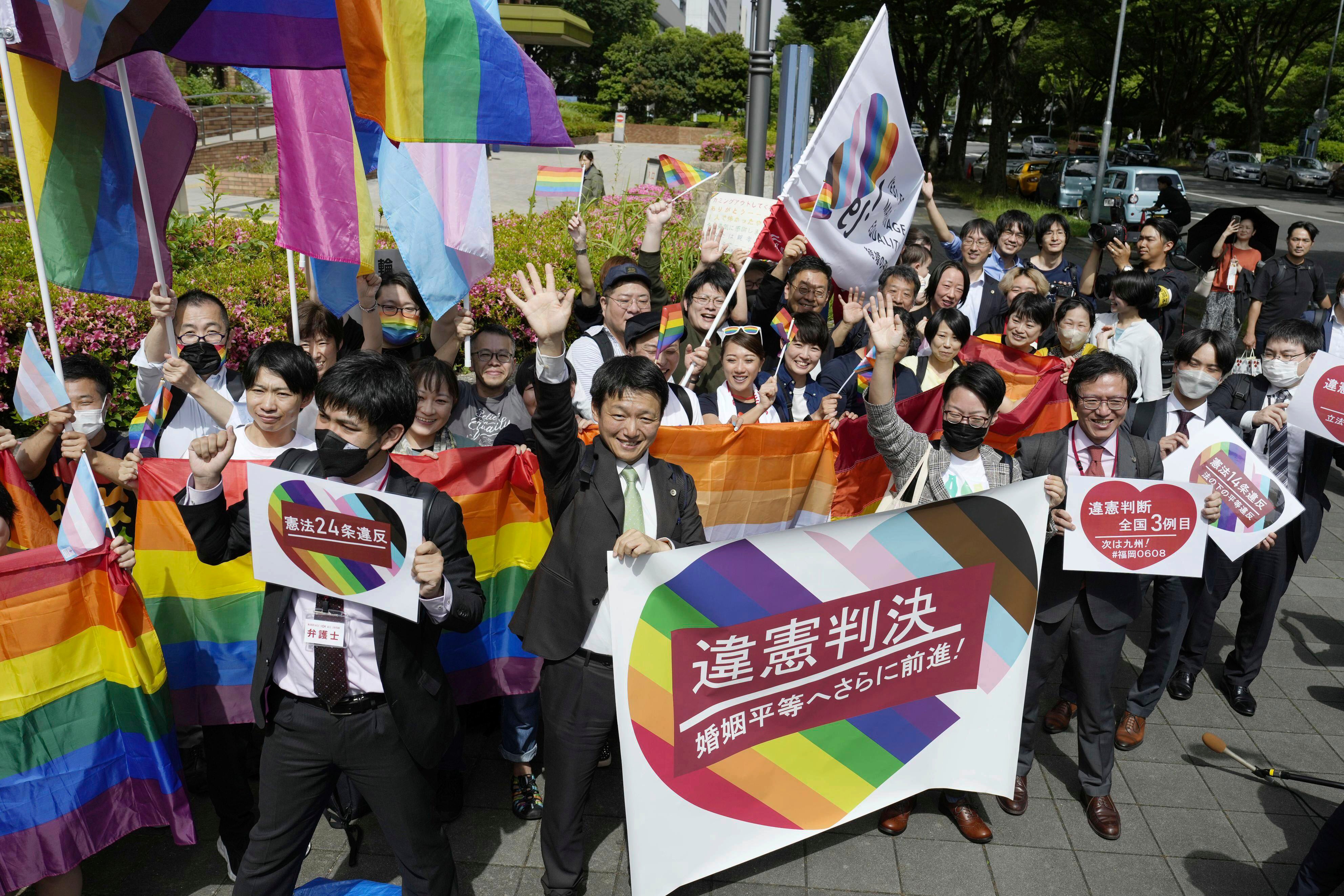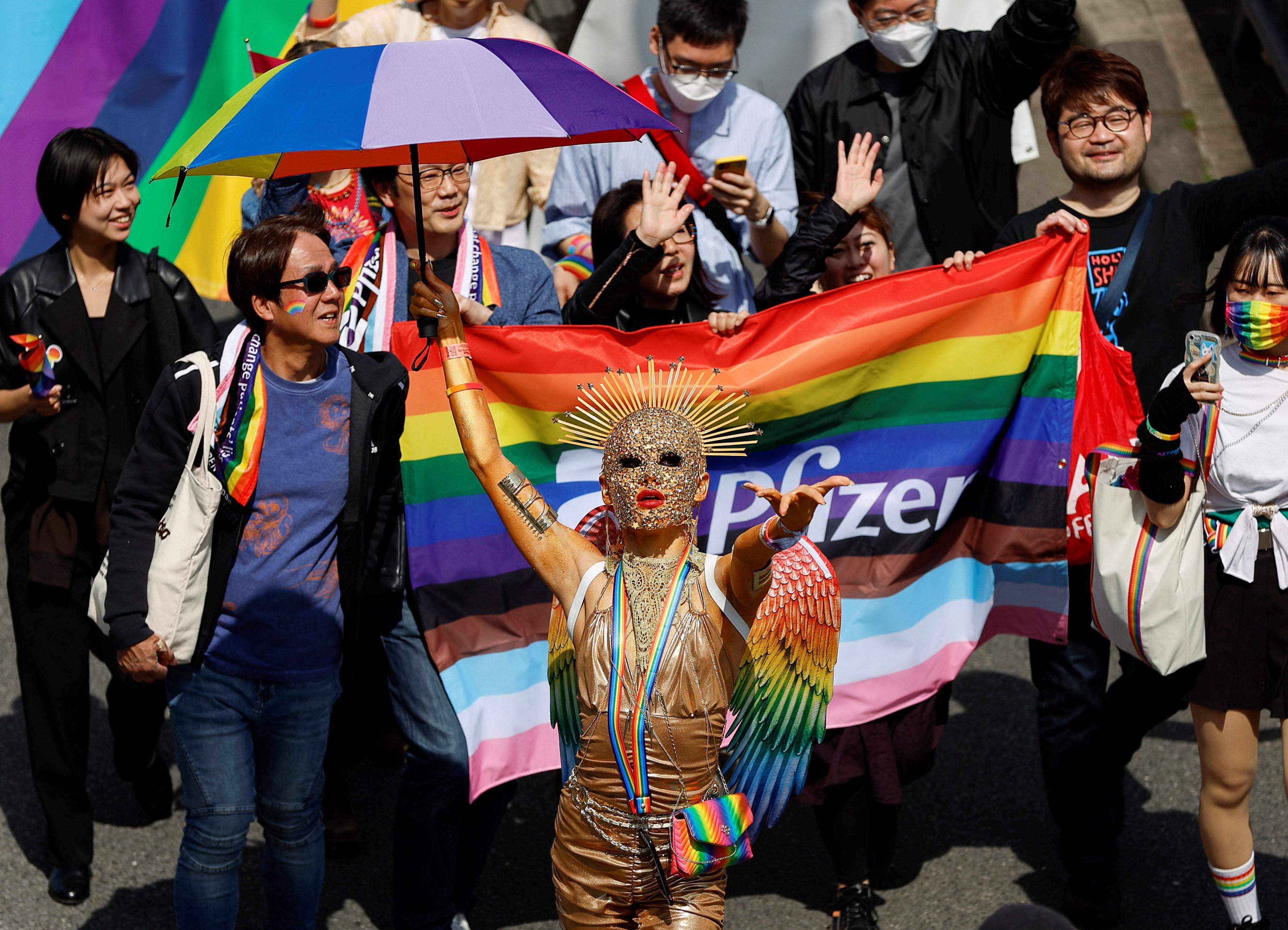Japanese court says not recognising same-sex marriage is ‘unconstitutional’ in boost for campaigners
‘The judicial branch, on behalf of the rights of minorities, raised its voice and it will be a strong message to the government’

Your support helps us to tell the story
From reproductive rights to climate change to Big Tech, The Independent is on the ground when the story is developing. Whether it's investigating the financials of Elon Musk's pro-Trump PAC or producing our latest documentary, 'The A Word', which shines a light on the American women fighting for reproductive rights, we know how important it is to parse out the facts from the messaging.
At such a critical moment in US history, we need reporters on the ground. Your donation allows us to keep sending journalists to speak to both sides of the story.
The Independent is trusted by Americans across the entire political spectrum. And unlike many other quality news outlets, we choose not to lock Americans out of our reporting and analysis with paywalls. We believe quality journalism should be available to everyone, paid for by those who can afford it.
Your support makes all the difference.A Japanese court on Tuesday ruled that not recognising same-same marriage violates the constitution, the second such decision that could pave the way for marriage equality.
The Nagoya district court sided with a gay couple that argued that they didn't have equal treatment under the law.
However, the court rejected a request by a couple that the government must pay them ¥1m ($7,100) each in compensation for the unequal treatment they face.
Judge Osamu Nishimura in his ruling said the current system that excludes same-sex couples from legal protections for their relationship is "unconstitutional" and there is no room for "government discretion" in the matter.
It was the second such ruling that found a ban against same-sex marriage unconstitutional, out of four cases over the past two years, which collectively add to pressure on prime minister Fumio Kishida's government to give more rights to the LGBT+ community.
"This ruling has rescued us from the hurt of last year's ruling that said there was nothing wrong with the ban, and the hurt of what the government keeps saying," lead lawyer Yoko Mizutani told reporters.
Not every case brought as part of the campaign has gone in favour of the campaigners, however. A court in Osaka last year ruled that the ban was not out of line with the constitution.
The ban on same-sex marriage was later upheld by a Tokyo court.
Asato Yamada, a lawyer for the plaintiffs, said the court’s ruling said clearly that not allowing same-sex marriage violates the guarantee of equal rights under Article 14 of the constitution.
“The judicial branch, on behalf of the rights of minorities, raised its voice and it will be a strong message to the government,” he said. “The message is that the government should resolve the problem immediately.”
Tuesday's ruling was celebrated by queer activists and supporters, who waved rainbow flags outside the court.

Although opinion polls suggest nearly 70 per cent of the public supports same-sex marriage, the ruling conservative Liberal Democratic Party opposes it.
Japan is the only member of the Group of Seven (G7) countries that doesn’t recognise same-sex marriages or civil unions.
Mr Kishida in February sacked an aide who sparked outrage by saying people would flee Japan if same-sex marriage was allowed. But the prime minister later in March said the country's ban on same-sex marriage is not discriminatory against queer people.
He reiterated his position that a ban on same-sex marriage was "not unconstitutional” and denied that he is prejudiced. “I believe I do not have a sense of discrimination (on the issue),” he said. “And I have never stated I’m against it.”
More than 300 Japanese municipalities covering some 65 per cent of the population allow same-sex couples to enter partnership agreements, albeit with limited rights. Partners can’t inherit each other’s assets, for example, or have parental rights to each other’s children.
Chief cabinet secretary Hirokazu Matsuno told a press conference that the government did not believe the civil code and marriage laws were unconstitutional.
“With regard to issues surrounding the introduction of same-sex marriage, we believe it is important to pay close attention to the opinions of all parts of the public,” he said.
Additional reporting by agencies



Join our commenting forum
Join thought-provoking conversations, follow other Independent readers and see their replies
Comments